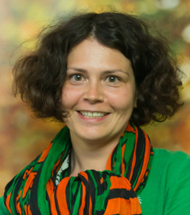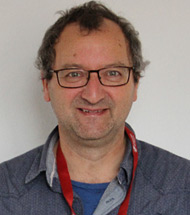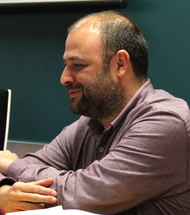"Studying oral traditions can help us understand cognition, memory and creativity in human beings"
Sarali Gintsburg, a Marie Curie Fellow at the University of Navarra, sees the academic community as an ally for preserving world languages

FOTO: Manuel Castells
"Studying oral traditions can help us understand aspects in human beings such as cognition, memory and creativity," according to Sarali Gintsburg, a Marie Curie Fellow at the Institute for Culture and Society (ICS) of the University of Navarra. She presented this research within the framework of an international conference.
According to the expert, citing data from Ethnologue, approximately 7,000 languages are spoken in the world, of which approximately 3,000 have a written system. "The largest epicenters of the oral world are found in the western part of Africa, the subcontinent of India and, oddly enough, the United States and Canada,” she indicated.
Gintsburg warns that the future of minority languages, especially those without a written system, "is not promising" and regrets that "they are destined to disappear soon." With each one that disappears, she adds, "a singular communication system, a unique logic, is lost. This is a detriment to diversity, which amounts to the ability to think differently— one of human beings’ most important resources."
In this line, she appeals to the research community’s involvement to "continue documenting oral languages however possible: by recording them on audio or video, compiling dictionaries and grammar books, and developing more research on them..."
Speakers from seven countriesSarali Gintsburg also reminded the audience of the importance of developing written language for humanity. "With it, the human ability to think changed radically because creating a writing system implies the ability to reach the highest level of abstraction. Likewise, regularly using a means for preserving information has an impact on memory.
The ICS researcher reflected on these issues in the framework of an international conference on transitional texts and the transition between orality and writing. Specialists from academic centers in Germany, the Netherlands, Russia, the United States and United Kingdom, Spain, and South Africa also participated.
This conference is part of Gintsburg’s ORFORCREA project “Locked Between Formulas: Creativity through oral and transitional poetic texts,” which receives funding from the European Union's Horizon 2020 Research and Innovation Program through a Marie Sklodowska-Curie Grant.




